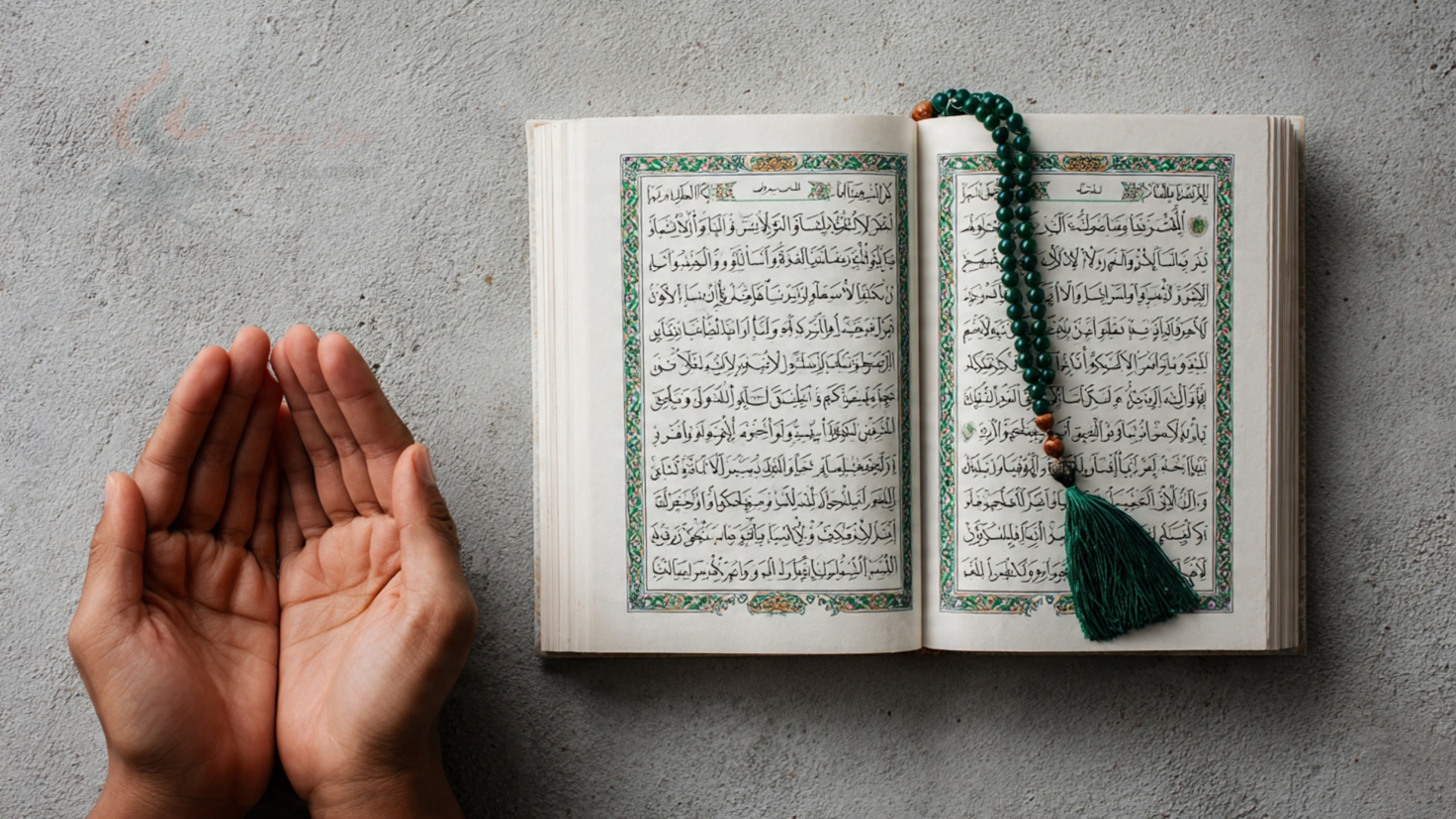Surah Al-Mutaffifin, the 83rd chapter of the Qur’an, is a stirring revelation that combines ethical teachings with vivid descriptions of the ultimate accountability on the Day of Judgment. With 36 verses, this Meccan Surah (though some scholars suggest a Medinan context for its initial verses) addresses moral conduct in trade, honest dealings, and the fates reserved for the righteous and sinful in the hereafter. The themes of justice, integrity, and divine retribution resonate universally, offering lessons that transcend time and geographic boundaries.
Themes of Surah Al-Mutaffifin
Condemnation of Cheating and Fraud
The Surah begins with striking condemnation aimed at those who commit Tatfif—giving short measure or withholding due weight in transactions. It declares, “Woe to those who give less in measure and weight, those who, when they receive their due from people, demand it in full. But when they measure or weigh for others, they give less” (83:1-3). The act of cheating in trade is not merely financial dishonesty; it reflects a betrayal of trust, ethics, and an unjust disturbance in societal order.
This critique extends beyond trade and applies to any unequal or deceptive conduct in personal dealings. It reminds believers that dishonesty at the micro level can have a ripple effect across businesses and communities, ultimately leading to widespread corruption and societal decline.
Accountability on a “Great Day”
The Surah moves swiftly to remind those who indulge in deceit that such behavior stems from a grave misunderstanding, or outright rejection of the truth of the Day of Judgment. The verses warn, “Do they not think they will be resurrected on a great Day—when all mankind will stand before the Lord of all worlds?” (83:4-6).
The Fate of the Wicked in Sijjin
The Surah delineates the destiny of the evildoers, their deeds recorded in Sijjin, a term often interpreted as a register of the deeds of transgressors. Verses 7-9 read, “Indeed, the record of the wicked is in *Sijjin. And what will make you realize what Sijjin is? A register inscribed.
Sijjin connotes a lower, constricted state, reflecting both the suffocating consequences of evil deeds and the dark desolation awaiting disbelievers on the Day of Judgment. The imagery underscores that divine justice is not only precise but unavoidable.
The Reward of the Righteous in Illiyyin
On the other hand, the Surah provides a striking juxtaposition by celebrating the rewards awaiting the righteous, whose deeds are recorded in Illiyyin. Verses 18-19 declare, “Indeed, the record of the righteous is in *Illiyyin. And what will make you realize what Illiyyin is? A register inscribed, witnessed by those brought near [to Allah].
Illiyyin symbolizes the celestial reward for believers, elevated both literally and spiritually. The righteous will dwell in bliss, seated on adorned thrones, radiant with divine pleasure. This depiction of paradise highlights the fairness inherent in divine judgment and encourages believers to strive toward moral perfection.
The Reciprocal Mockery of the Righteous and Wicked
The concluding verses of Surah Al-Mutaffifin make a poignant observation about worldly arrogance and the eventual reversal of fortunes. The wicked, who mocked believers during their lives, are notably repaid in full. Verse 34 proclaims, “This Day, those who believed will laugh at the disbelievers.”
This passage strikes a balance between justice and irony. It demonstrates that earthly ridicule borne out of faith is temporary, while the disdain of faithlessness carries eternal ramifications.

Surah Al-Mutaffifin Transliteration , English & Urdu Translation
بِسۡمِ ٱللَّهِ ٱلرَّحۡمَٰنِ ٱلرَّحِيمِ
Bismillah hir rahman nir raheem
اللہ کے نام سے شروع جو نہایت مہربان ، رحمت والاہے ۔
In the name of Allah, the Entirely Merciful, the Especially Merciful.
وَيۡلٞ لِّلۡمُطَفِّفِينَ
Wailul lil mutaffifeen
کم تولنے والوں کے لئے خرابی ہے۔
Woe to those who give less [than due],
ٱلَّذِينَ إِذَا ٱكۡتَالُواْ عَلَى ٱلنَّاسِ يَسۡتَوۡفُونَ
Allazeena izak taaloo ‘alan naasi yastawfoon
وہ لوگ کہ جب دوسرے لوگوں سے ناپ لیں توپورا وصول کریں ۔
Who, when they take a measure from people, take in full.
وَإِذَا كَالُوهُمۡ أَو وَّزَنُوهُمۡ يُخۡسِرُونَ
Wa izaa kaaloohum aw wazanoohum yukhsiroon
اور جب انہیں ناپ یا تول کردیں توکم کردیں ۔
But if they give by measure or by weight to them, they cause loss.
أَلَا يَظُنُّ أُوْلَـٰٓئِكَ أَنَّهُم مَّبۡعُوثُونَ
Alaa yazunnu ulaaa’ika annahum mab’oosoon
کیا یہ لوگ یقین نہیں رکھتے کہ انہیں (دوبارہ زندہ کر کے)اٹھایا جائے گا ۔
Do they not think that they will be resurrected
لِيَوۡمٍ عَظِيمٖ
Li Yawmin ‘Azeem
ایک عظمت والے دن کے لیے۔
For a tremendous Day –
يَوۡمَ يَقُومُ ٱلنَّاسُ لِرَبِّ ٱلۡعَٰلَمِينَ
Yawma yaqoomun naasu li Rabbil ‘aalameen
جس دن سب لوگ رَبُّ العالمین کے حضور کھڑے ہوں گے۔
The Day when mankind will stand before the Lord of the worlds?
كَلَّآ إِنَّ كِتَٰبَ ٱلۡفُجَّارِ لَفِي سِجِّينٖ
Kallaaa inna kitaabal fujjaari lafee Sijjeen
یقینا بیشک بد کاروں کا نامہ اعمال ضرور سجین میں ہے۔
No! Indeed, the record of the wicked is in sijjeen.
وَمَآ أَدۡرَىٰكَ مَا سِجِّينٞ
Wa maa adraaka maa Sijjeen
اور تجھے کیا معلوم کہ سجین کیا ہے؟
And what can make you know what is sijjeen?
كِتَٰبٞ مَّرۡقُومٞ
Kitaabum marqoom
(وہ) مہرلگائی ہوئی ایک کتاب ہے ۔
It is [their destination recorded in] a register inscribed.
وَيۡلٞ يَوۡمَئِذٖ لِّلۡمُكَذِّبِينَ
Wailuny yawma’izil lil mukazzibeen
اس دن جھٹلانے والوں کے لئے خرابی ہے۔
Woe, that Day, to the deniers,
ٱلَّذِينَ يُكَذِّبُونَ بِيَوۡمِ ٱلدِّينِ
Allazeena yukazziboona bi yawmid deen
جو انصاف کے دن کو جھٹلاتے ہیں ۔
Who deny the Day of Recompense.
وَمَا يُكَذِّبُ بِهِۦٓ إِلَّا كُلُّ مُعۡتَدٍ أَثِيمٍ
Wa maa yukazzibu biheee illaa kullu mu’tadin aseem
اور اسے نہیں جھٹلائے گا مگر ہر سرکش، بڑا گناہگار ۔
And none deny it except every sinful transgressor.
إِذَا تُتۡلَىٰ عَلَيۡهِ ءَايَٰتُنَا قَالَ أَسَٰطِيرُ ٱلۡأَوَّلِينَ
Izaa tutlaa’alaihi aayaatunaa qaala asaateerul awwaleen
جب اس پر ہماری آیتیں پڑھی جاتی ہیں تو کہتا ہے (یہ قرآن) اگلوں کی کہانیاں ہیں ۔
When Our verses are recited to him, he says, “Legends of the former peoples.”
كَلَّاۖ بَلۡۜ رَانَ عَلَىٰ قُلُوبِهِم مَّا كَانُواْ يَكۡسِبُونَ
Kallaa bal raana ‘alaa quloobihim maa kaanoo yaksiboon
(ایسا) ہرگز نہیں (ہے) بلکہ ان کے کمائے ہوئے اعمال نے ان کے دلوں پر زنگ چڑھادیا ہے۔
No! Rather, the stain has covered their hearts of that which they were earning.
كَلَّآ إِنَّهُمۡ عَن رَّبِّهِمۡ يَوۡمَئِذٖ لَّمَحۡجُوبُونَ
Kallaaa innahum ‘ar Rabbihim yawma’izil lamah jooboon
یقینابیشک وہ اس دن اپنے رب کے دیدار سے ضرور محروم ہوں گے۔
No! Indeed, from their Lord, that Day, they will be partitioned.
ثُمَّ إِنَّهُمۡ لَصَالُواْ ٱلۡجَحِيمِ
Summa innahum lasaa lul jaheem
پھر بیشک وہ ضرور جہنم میں داخل ہونے والے ہیں ۔
Then indeed, they will [enter and] burn in Hellfire.
ثُمَّ يُقَالُ هَٰذَا ٱلَّذِي كُنتُم بِهِۦ تُكَذِّبُونَ
Summa yuqaalu haazal lazee kuntum bihee tukazziboon
پھر کہا جائے گا: یہ وہ ہے جسے تم جھٹلاتے تھے۔
Then it will be said [to them], “This is what you used to deny.”
كَلَّآ إِنَّ كِتَٰبَ ٱلۡأَبۡرَارِ لَفِي عِلِّيِّينَ
Kallaaa inna kitaabal abraari lafee’Illiyyeen
یقینا بیشک نیک لوگوں کا نامہ اعمال ضرور علیین میں ہے۔
No! Indeed, the record of the righteous is in ‘illiyyun.
وَمَآ أَدۡرَىٰكَ مَا عِلِّيُّونَ
Wa maaa adraaka maa ‘Illiyyoon
اور تجھے کیا معلوم کہ علیین کیا ہے؟
And what can make you know what is ‘illiyyun?
كِتَٰبٞ مَّرۡقُومٞ
Kitaabum marqoom
(وہ) مہر لگائی ہوئی ایک کتاب ہے۔
It is [their destination recorded in] a register inscribed
يَشۡهَدُهُ ٱلۡمُقَرَّبُونَ
Yashhadu hul muqarra boon
قرب والے اس کی زیارت کرتے ہیں ۔
Which is witnessed by those brought near [to Allah].
إِنَّ ٱلۡأَبۡرَارَ لَفِي نَعِيمٍ
Innal abraara lafee Na’eem
بیشک نیک لوگ ضرور چین میں ہوں گے۔
Indeed, the righteous will be in pleasure
عَلَى ٱلۡأَرَآئِكِ يَنظُرُونَ
‘Alal araaa’iki yanzuroon
تختوں پر نظارے کررہے ہوں گے۔
On adorned couches, observing.
تَعۡرِفُ فِي وُجُوهِهِمۡ نَضۡرَةَ ٱلنَّعِيمِ
Ta’rifu fee wujoohihim nadratan na’eem
تم ان کے چہروں میں نعمتوں کی تروتازگی پہچان لو گے ۔
You will recognize in their faces the radiance of pleasure.
يُسۡقَوۡنَ مِن رَّحِيقٖ مَّخۡتُومٍ
Yusqawna mir raheeqim makhtoom
انہیں صاف ستھری خالص شراب پلائی جائے گی جس پر مہر لگائی ہوئی ہوگی۔
They will be given to drink [pure] wine [which was] sealed.
خِتَٰمُهُۥ مِسۡكٞۚ وَفِي ذَٰلِكَ فَلۡيَتَنَافَسِ ٱلۡمُتَنَٰفِسُونَ
Khitaamuhoo misk; wa fee zaalika falyatanaafasil Mutanaafisoon
اس کی مہر مشک (کی) ہے اور للچانے والوں کو تواسی پر للچانا چاہئے۔
The last of it is musk. So for this let the competitors compete.
وَمِزَاجُهُۥ مِن تَسۡنِيمٍ
Wa mizaajuhoo min Tasneem
اور اس کی ملاوٹ تسنیم سے ہے۔
And its mixture is of Tasneem,
عَيۡنٗا يَشۡرَبُ بِهَا ٱلۡمُقَرَّبُونَ
‘Ainaiy yashrabu bihal muqarraboon
ایک چشمہ جس سے مقرب بندے پئیں گے۔
A spring from which those near [to Allah] drink.
إِنَّ ٱلَّذِينَ أَجۡرَمُواْ كَانُواْ مِنَ ٱلَّذِينَ ءَامَنُواْ يَضۡحَكُونَ
Innal lazeena ajramoo kaanoo minal lazeena aamanoo yadhakoon
بیشک مجرم لوگ ایمان والوں پر ہنسا کرتے تھے۔
Indeed, those who committed crimes used to laugh at those who believed.
وَإِذَا مَرُّواْ بِهِمۡ يَتَغَامَزُونَ
Wa izaa marroo bihim yataghaamazoon
اور جب وہ ان کے پاس سے گزرتے تو یہ آپس میں (ان پر) آنکھوں سے اشارے کرتے تھے۔
And when they passed by them, they would exchange derisive glances.
وَإِذَا ٱنقَلَبُوٓاْ إِلَىٰٓ أَهۡلِهِمُ ٱنقَلَبُواْ فَكِهِينَ
Wa izan qalabooo ilaaa ahlihimun qalaboo fakiheen
اور جب یہ کافر اپنے گھروالوں کی طرف لوٹتے تو خوش ہو کر لوٹتے۔
And when they returned to their people, they would return jesting.
وَإِذَا رَأَوۡهُمۡ قَالُوٓاْ إِنَّ هَـٰٓؤُلَآءِ لَضَآلُّونَ
Wa izaa ra awhum qaalooo inna haaa’ulaaa’i ladaaal loon
اور جب مسلمانوں کو دیکھتے توکہتے: بیشک یہ لوگ بہکے ہوئے ہیں ۔
And when they saw them, they would say, “Indeed, those are truly lost.”
وَمَآ أُرۡسِلُواْ عَلَيۡهِمۡ حَٰفِظِينَ
Wa maaa ursiloo ‘alaihim haafizeen
حالانکہ ان کافروں کو مسلمانوں پر نگہبان بناکر نہیں بھیجا گیا۔
But they had not been sent as guardians over them.
فَٱلۡيَوۡمَ ٱلَّذِينَ ءَامَنُواْ مِنَ ٱلۡكُفَّارِ يَضۡحَكُونَ
Fal yawmal lazeena aamanoo minal kuffaari yadhakoon
تو آج ایمان والے کافروں پر ہنسیں گے۔
So Today those who believed are laughing at the disbelievers,
عَلَى ٱلۡأَرَآئِكِ يَنظُرُونَ
‘Alal araaa’iki yanzuroon
تختوں پر بیٹھے دیکھ رہے ہوں گے۔
On adorned couches, observing.
هَلۡ ثُوِّبَ ٱلۡكُفَّارُ مَا كَانُواْ يَفۡعَلُونَ
Hal suwwibal kuffaaru maa kaanoo yaf’aloon
کیا بدلہ دیا گیا کافروں کو اس کا جو وہ کام کرتے تھے۔
Have the disbelievers not been rewarded [this Day] for what they used to do?
Ethical Lessons Embedded in Surah Al-Mutaffifin
Honesty in Transactions
The opening verses of the Surah form a strong ethical charge against deceit. Commerce and honesty are inseparable, as trust is the backbone of any economy. By emphasizing meticulous fairness in trade, the Surah advocates for a broader paradigm of integrity in all forms of human interaction.
The Damage of Material Obsession
The warning against shortchanging others urges individuals to rise above material greed. It prompts an inward review of values and priorities, directing focus toward eternal gains rather than fleeting worldly wealth. Ethical financial practices, as suggested by the Qur’an, foster both individual peace and communal prosperity.
The Consequences of Neglecting Judgment
Acknowledging accountability before Allah discourages dishonesty and corruption.
Prophet Muhammad (peace be upon him) remarked, “Verily, whoever cheats is not one of us” (Muslim). This hadith reiterates the Quranic stance on cheating, a declaration that dishonesty has implications both in this life and the hereafter.
Aspiring for Righteousness
The Surah’s depiction of Illiyyin serves as a clarion call for moral and spiritual excellence. It affirms that Allah’s rewards are neither arbitrary nor inaccessible. Each righteous act increases one’s standing with the Creator.
The Day of Judgment as a Catalyst for Change
The emphasis on the Day of Resurrection seeks to awaken the dormant conscience. One of its key messages is that the weight of actions cannot be ignored. Prophet Muhammad (peace be upon him) said, “The wise person is the one who assesses himself and works for what is after death” (Tirmidhi).
By continuously reflecting on their eventual meeting with Allah, people can check daily interactions and mitigate misdeeds. This is crucial in fostering healthier relationships, cleaner governance, and lawful economies.
The Timeless Relevance of Surah Al-Mutaffifin
Modern society is riddled with fraudulent practices from corporate embezzlement to manipulative marketing strategies. Surah Al-Mutaffifin’s ethical code is profoundly relevant. It challenges us to dismantle systems of greed and corruption, urging individuals and institutions to act responsibly.
Additionally, the Surah’s attention to accountability reminds us of our interconnectedness. It aligns with today’s global movements advocating for sustainable development and economic fairness, proving that the Qur’an addresses both personal morality and collective societal ethics.
The imagery of Sijjin and Illiyyin continues to inspire awe and reflection. It offers solace to those wronged by injustice, promising that no deed escapes divine oversight.
A Unique Perspective on Relevance Today
Surah Al-Mutaffifin compels us to ask critical questions. How can we embody fairness in an era of moral relativism? How do we anchor ourselves in justice while navigating the complications of modern economies?
This Surah provides a clear moral compass. It steers individuals away from dishonest gain, keeping them steadfast in their pursuit of Allah’s pleasure. It also challenges collective systems, business ethics, legal frameworks, and corporate cultures to adopt integrity as a universal principle.
Its relevance reaches into deeper realms of human conduct. By abstaining from minor injustices toward others, we elevate human dignity.The Surah ultimately encourages a life powered by purpose and aligned with divine principles.
Conclusion
Surah Al-Mutaffifin stands as a universal call to ethics, accountability, and salvation. It warns against the pitfalls of dishonesty, while promising eternal bliss for the upright. Its timeless meanings are not confined to spiritual semantics—they pervade every fabric of life.
Today, individuals must heed its lessons not just as religious guidance but as actionable moral imperatives. Imbibing its values in personal and societal spheres fosters equity, builds integrity, and guarantees success in this life and the hereafter.
Surah Al-Mutaffifin reminds us that while our worldly existence is fleeting, its outcomes are everlasting. May its lessons guide us toward uprightness, fairness, and ultimate salvation.




